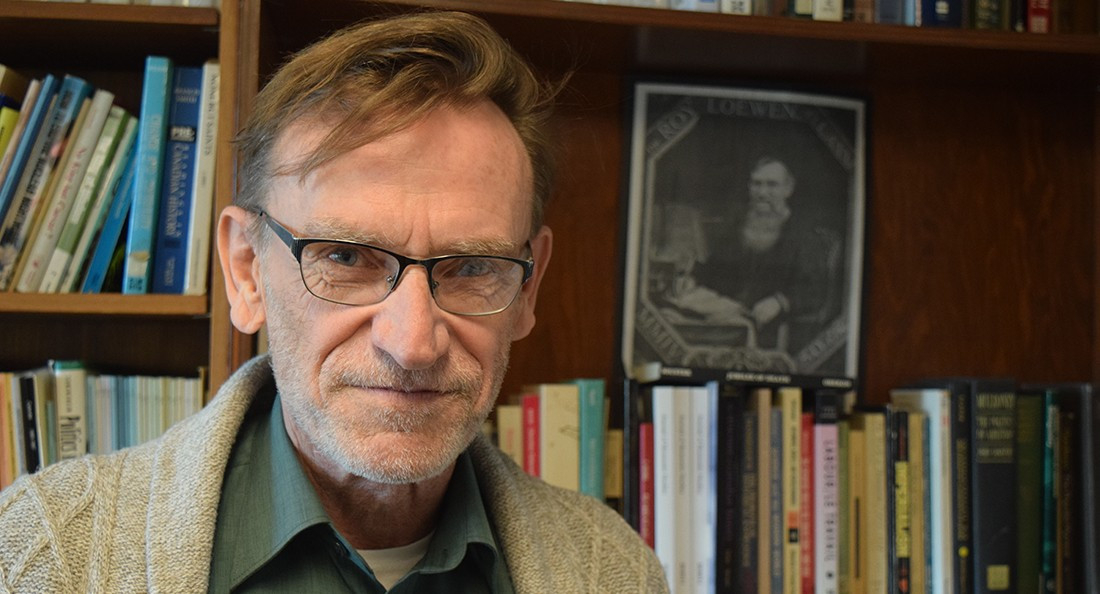PROFile: Royden Loewen
Professor and Chair in Mennonite Studies
Professor Royden Loewen, a professor and the chair in Mennonite studies at the University of Winnipeg (U of W), says he’s been with the university forever.
He first came to the U of W in 1973 as a 17-year-old, and, 23 years later, he was app-ointed as the chair in Mennonite studies.
In 2013, he started working on a film project, based on a research project, with Paul Plett, a local movie producer.
“It was to study and compare the environmental history of seven Mennonite farm communities around the world,” Loewen says.
“The film is called Seven Points on Earth … (The) focus tends to be on the 20th century - the century of the great change from subsistence, household based farming to more commercial farming,” Loewen says. “And then, in response to commercial farming, oftentimes organic farming (comes) as a critique of commercial farming.”
One community is an original settlement in the Netherlands, one of the places Mennonites originated, Loewen says. The community is in the province of Friesland.
Two communities in the grasslands are the Mennonites in Manitoba who came from the Netherlands, and the second community is in Iowa who came from Switzerland.
Mennonite farmers in Zimbabwe and Java, Indonesia were also studied for the film.
“In the late 1800s, Mennonite missionaries went there (Zimbabwe and Java) and added religion and farming together, so as they (people in Zimbabwe and Java) converted and joined the Mennonite church, they were encouraged to farm,” Loewen says.
The communities of Mennonite farmers in Siberia and Bolivia were the sixth and seventh groups studied.
Loewen says the Mennonites in Bolivia left Canada in 1920 in protest of public schools being made, and it was the largest emigration of Canadians ever. They first moved to Mexico, where they were allowed to have their own schools if they farmed. When modernity caught up to them in the 1960s, they left and went to Bolivia.
“The globe is such a complex place, and by focusing narrowly on seven places, we try to get to understanding how these places are different,” he says. “And also, how they all encounter similar problems: globalization, economic globalization, various pressures for farmers to accept chemicalized farming in every area, and so farmers respond differently depending on where they are from.”
What was your worst grade in university? I got two C-pluses. When I came here in ’73 as a 17-year-old, I wanted to major in political science or geography. And I left those two courses, and I got a C+ in both of them, and I got an A in history. So I became an historian.
What’s your favourite thing about yourself? The moment you say it, you sound like you’re egotistical. I think my innate humility maybe. I like the fact that I think I’m adventurous. I’m a winter cyclist. I’m 63, and I take my bicycle to work throughout the winter, and I have on my bucket list kayaking from Manitoba to the Northwest Territories.
Published in Volume 72, Number 20 of The Uniter (March 8, 2018)








